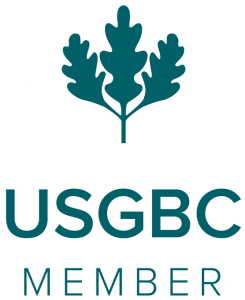The Government of Jamaica has embarked on implementing a Global Logistics Hub Initiative and the Jamaica Special Economic Zone Authority (JSEZA) is positioning Jamaica to capture a greater market share and increase its long-term competitiveness, through its P3+ Industries Framework.
This is possible as Jamaica is in a prime geographic location to become a global logistics hub, creating easier linkages between other global hubs and western markets.
The P3+ Framework was established to identify the prohibited, permitted and priority industries for special economic zones with a focus on allocating resources to the priority industries to attract their development and expansion in special economic zones (SEZs) in Jamaica.
“The P3 is an important tool that identifies the key sectors that will stimulate the development of special economic zones in Jamaica, which will further advance our logistics hub competitiveness,” Research Economist in the Regulations, Policy, Monitoring and Enforcement Unit at JSEZA, Carlton Thomas, tells JIS News.
The priority industries are automotive; pharmaceutical, biotechnology and beauty care; creative industries and new digital media; global services sector; logistics and supply chain management; food manufacturing and agrotechnology electronics; and digital/information and communications technologies. All other industries not captured on the list of excluded activities mentioned in the Special Economic Zone Act, 2016 are considered permitted industries.
The P3+ Framework is the end product of three main phases of activities. The first phase involved a comparative look at four major studies, which included the Jamaica National Export Strategy and the Vision 2030 Jamaica National Development Plan. From there, industry commonalities were pulled and analysed through the Harvard Atlas of Economic Complexity. The atlas is a data visualisation tool that uses multiple inputs to track and project the growth of economies around the world. It also rates countries on the complexity of their economies.
“The advantage of this particular site is that you can then see where there are certain complementarities. They make recommendations as to what Jamaica should focus on and they even rank it from ‘low-hanging fruit’ to higher-level activities. It links its recommendations to other related elements with the notion that if you attract one industry, it sets you on the path to attract other industries. That also helped us to finetune the priority list,” says JSEZA’s Senior Director of Regulations, Policy, Monitoring and Enforcement, Ainsley Brown.
The team at JSEZA is now in the third phase of the P3+ Framework, in which they have determined the ‘minimum viable product’ for each industry. It involves laying the groundwork for Jamaica to attract investors and operators in the priority industries list to operate out of and enter partnerships with Jamaican SEZs.
“Phase three is where we move away from the industries and drill down. We do a value chain analysis and then we look at what products and services can be produced in Jamaica and how best to approach it,” Mr. Brown continues.
In the automotive industry, for example, JSEZA is working towards taking the country from regional car-distribution activities to being an auto-parts hub. Similarly, in the pharmaceutical, biotechnology and beauty care industry, the aim is to take Jamaica from just a biodiversity source to biotech and beauty care cluster that would entail the production of hair products, branching off into medicaments and, ultimately, engaging in activities like 3-D tissue modelling. However, before these can be achieved, the JSEZA Senior Director explains that a foundation must first be laid.
“A lot of groundwork has taken place, particularly with our labs around the country and getting them up to a certain standard. The fact that there are these standards will now permit us to move into medicament manufacturing whereas before we would not have been looking attractive to investors because we didn’t have that standards level in place; but now, we have that groundwork being done. Bureau of Standards and the Jamaica National Agency for Accreditation (JANAAC) and others have been doing some wonderful work that sometimes doesn’t get recognised but is necessary,” shares Mr. Brown.
Another organisation that has been working on the expansion of the priority industries, is the Jamaica Promotions Corporation (JAMPRO). JAMPRO has targeted the growth of the global services sector locally by upskilling Jamaica’s workforce and has now aided in cementing partnerships in the pharmaceutical industry.
Recently, JAMPRO announced a pharmaceutical partnership between Pure Jamaican and Sweden-based Klaria Pharma. The partnership will see research and development being done in Jamaica and Klaria Pharma launching a new pharmaceutical delivery system for the substance psilocybin.
“Being able to attract new intellectual property to our shores, and to begin building a reputation as a global leader, manufacturer, and exporter of a new pharmaceutical delivery system for medicinal cannabis and psilocybin are exciting economic development opportunities for our country,” states JAMPRO President, Diane Edwards.
Echoing her sentiments is JSEZA’s Research Economist, Carlton Thomas, who says anticipating the needs of investors then being willing to move to attract them is the new paradigm of investments.
“Part of the work that the JSEZA is doing is the creation of what we call structural transformation maps, which look at, among other things, education and skills development, technology, infrastructure, spillover/linkages effects, export growth potential, etc., of the priority industries. We then critically answer the following questions: What is the impact of attracting this industry on Jamaica’s economy. What is it that Jamaica already has that would be attractive to players in these industries. And what does Jamaica need to do to further improve its attractiveness to the players in these industries,” Mr. Thomas says.
JSEZA has also been developing business/data intelligence that will be made available to prospective investors to help them decide on Jamaica. They have also been forging linkages within SEZs and the domestic market to aid in attracting investors.
If the established approach of a “likkle step, big step then leap frog” continues to be utilised for the identified and targeted activities in the priority industries, Mr. Brown, has no doubt that Jamaica will experience structural transformation.
“That is the aim of the zone regime. We would have moved Jamaica from where we are to where we should be. We would be achieving Vision 2030 and it is an achievable goal if we all work together and hit on all cylinders. We would be advancing our people in terms of different and new industries, and we would be diversifying the Jamaican economy. We need to move into that, attract the necessary investments that would move us into that space and essentially move our nation forward,” shares Mr. Brown.
The goals of the Jamaica Special Economic Zone Authority continue to be to attract investments, facilitate business, regulate and supervise SEZs and provide policy direction for the development and sustainability of Jamaica’s economy.
Source: https://jis.gov.jm/features/global-logistics-hub-to-diversify-economy/




